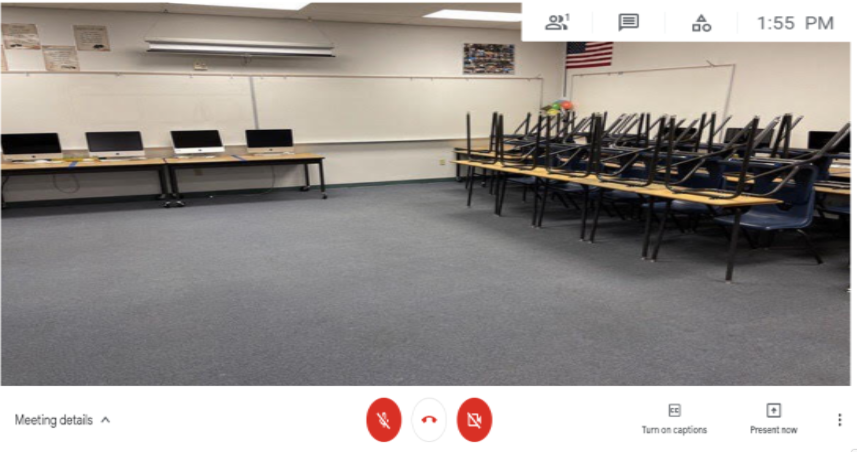Logging out the 2020-2021 School Year: Students and Staff reflect on virtual learning
The online school year may be ending, but not the experiences students and staff have learnt will continue to affect them for years beyond.
May 21, 2021
It’s been over a year since COVID-19 was officially announced as a global pandemic. Since then, changes to technology, personal mentality, and social interactions have drastically opened the ability to adapt to local shifts, including those within our school. A full school year following the distanced learning model certainly provided a number of challenges for students and staff. As new opportunities such as in-person learning have advanced new attitudes and hopes for the upcoming year, reflecting on the past year can provide insight towards changed behaviors personally and historically.
“[As] teachers, we go into the world of education, so we never stop learning,” teacher Anthony Coffield said. “We never stop being learners; we have to. We adapt to situations. When the pandemic hit, every single teacher had to adapt to the situation.”
Widely agreed upon amidst the lockdowns, were the increased mental struggles and personal well being becoming emphasized over the course of the year. For students, handling mental challenges in a classroom from home served as comfort while to some, was an environment of pressure.
“One of the most challenging aspects would be becoming anxious when it comes to certain assignments,” junior Caitlyn Cunningham said. “I overcame them by knowing that I have to try my best and ask questions if needed.”
According to Cunningham, some factors of a virtual classroom, such as turning on the camera, or unmuting during class, held the same pressures of anxiety in comparison to in-person learning, such as when giving a presentation in front of class. She also found the virtual set up to be more convenient in terms of self-pace and comfort.
“At a district level, I haven’t seen much push or give to us [teachers],” Coffield said. “I know that everything is student driven but at the end of the day who’s actually driving the car? It’s us.”
When it comes to making plans, it seems as though the district is constantly thinks about how this can help students. For example, the hybrid model was made to keep students’ safety in mind, but there was almost no prevalent backup plan for teachers to stay safe. Teachers are expected to teach in-person and virtual at the same time, while students have the choice when they want to go to school.
“I’m planning on continuing virtual learning. At times I find it best where there isn’t that much of a distraction and just where I can do things at my own pace,” Cunningham said.
While the comfort of home-schooling is deemed more flexible, however, some students found that luxury of working from home was more damaging to their work ethic because of the long-comfortability.
“Being at home kind of makes you too comfortable, and I think that was the case for me,” freshman Ava Roni said. “I can’t really say that I’m completely satisfied… because I know I could’ve done better when I’m in person because I also get to see how people are handling the class.”
“We’re trying. We’re trying our hardest,” Coffield said, “and we can only do as well as the amount you try.”
While students may prefer to stay in their own comfort zones, that puts pressures on teachers to guess what the class needs. Without having engagement, teachers cannot do checks on the room to see if students understand the material or not, and the extension of their teaching is based on how much the students can engage in the classroom.
Student workload was a major factor in which students say contributed to their mental health. And because of the relaxation granted from home environments, motivation levels seemed to plummet.
“One of the biggest challenges this year, especially in the beginning and now towards the end, was staying motivated to do my work and actually turn things in,” junior Miguel Torres said. “I definitely wasn’t in a good place mentally because I felt like work just kept on coming.”
One important thing that comes out of the pandemic is that mental health is being talked about and became an important factor when thinking of school. As the district requires wellcheck-wellness days, it sets the notion that how people are feeling is important and can get the help that they need.
“Finally, people are opening up about mental wellness, and mental being,” Coffield said. “I’m glad they’re finally making steps towards the right direction to help our kids and to make sure that everyone is okay and safe…”




